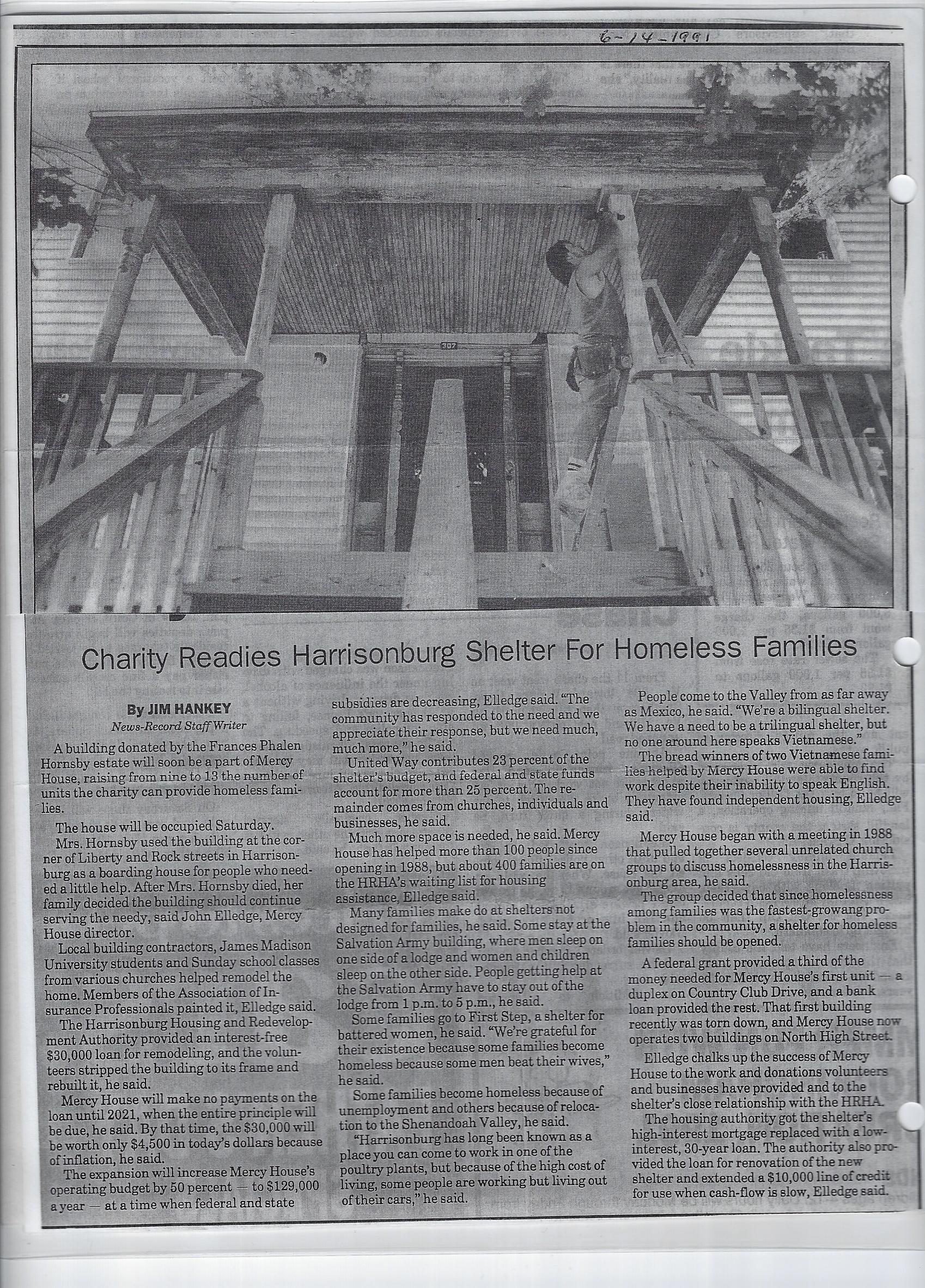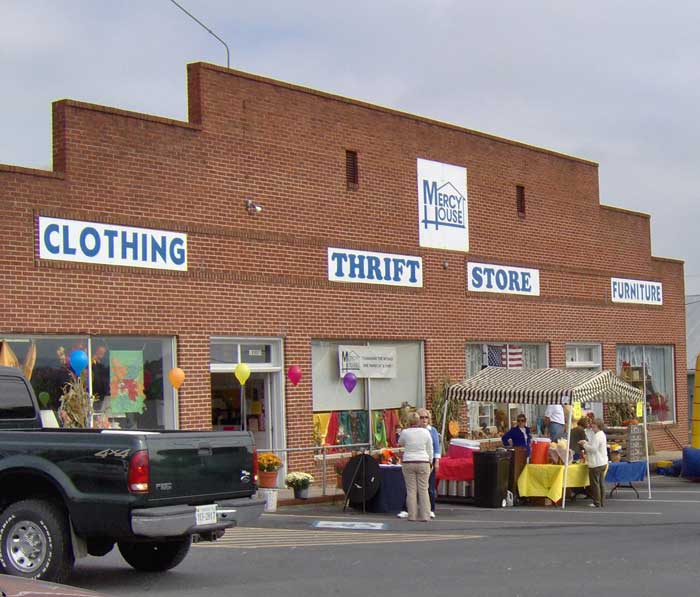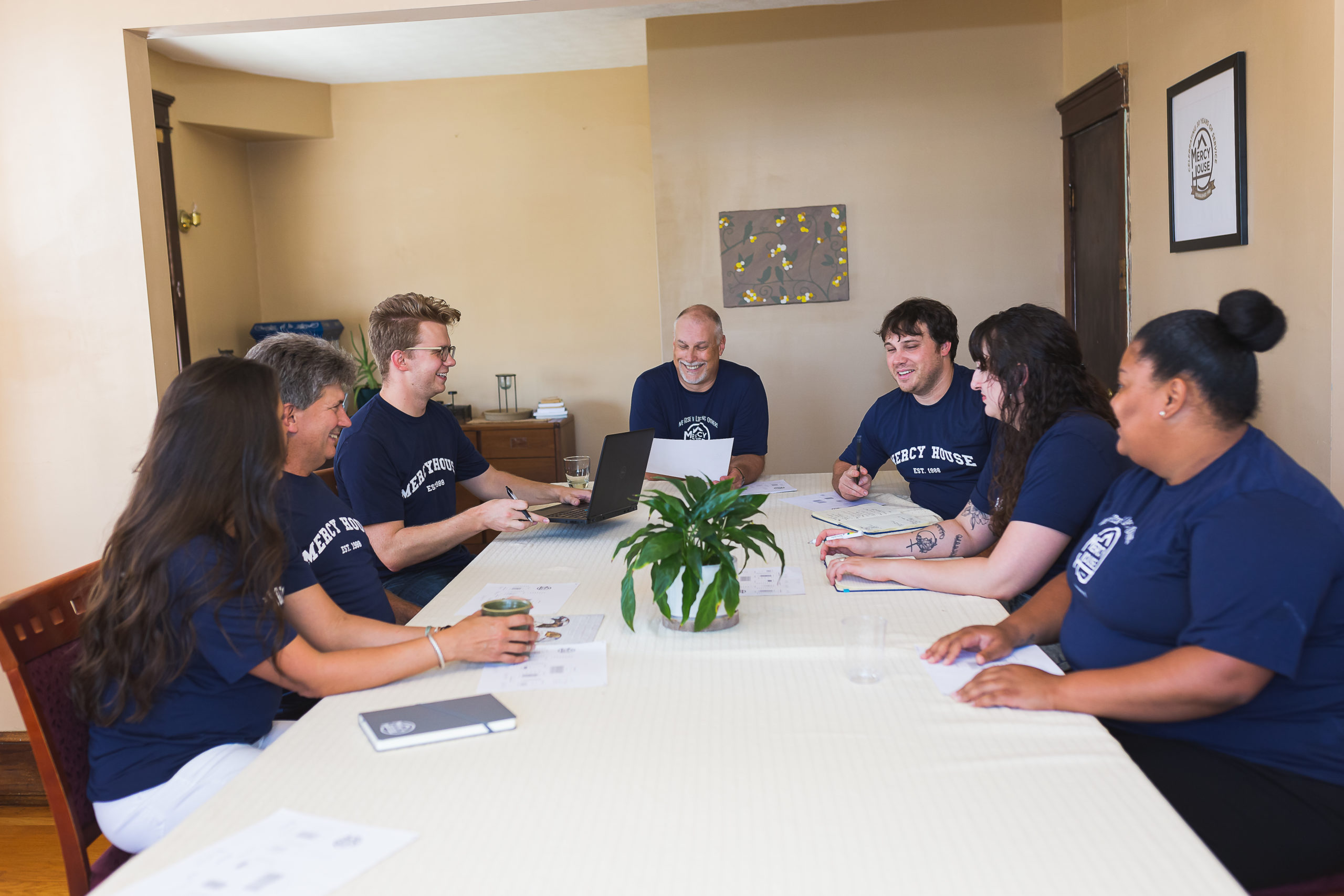Our Story
Mercy House through the years…

1988
Mercy House becomes incorporated and acquires 243 and 247 N. High Street properties to address a growing need for shelter for families with children

1990
Frances Phalen Hornsby willed the property at 307 N. Liberty St. to Mercy House. Mercy House converted the house into 4 efficiency units for shelter which still serve our community today
1993
Mercy House Board of Directors chooses a property on Liberty St. to open a thrift store to support the shelter operations
1994
Harrisonburg Redevelopment and Housing Authority (HRHA) and Mercy House won the Governor’s Housing Achievement Award for Family Self-Sufficiency Program

2002
Mercy House Thrift Store moved to S. High St location, where it still remains today. The Mercy House Thrift Store expands to include the Thrift Boutique and a Building Supply store, added in 2014. While the thrift store proceeds support the shelter operations the stores also provide direct services to the community.
2004
Mercy House begins receiving Community Development Block Grant funds to run an Aftercare program, providing ongoing services and case management to households once they leave shelter. Up to 96% of households that participate in this program do not return to homelessness for at least one year after leaving shelter.
2007
Mercy House begins a 1-year transitional housing program using a double-wide trailer that was donated by the Knicks family. The Transitional Housing program provided significantly reduced rent for a period of one year, along with monthly case management, for a family exiting shelter. Paying reduced rent allowed the family to work on education, increased employment and savings in order to prepare the family for market rate housing in the community at the end of the year.
With support from the Early, Tutweiler and Logsdon families the program expanded to transitionally house up to 5 families at a time. The program was later closed in 2013.

2008
Mercy House celebrates its 20th anniversary
Mercy House expands services to include a Homeless Intervention Program (HIP). HIP was designed to intervene financially when a household had an unexpected event that put their housing at risk. The program could assist with rental arrearages and some future rental assistance until the family’s finances stabilized after the event.
Mercy House also introduces Sandal House, a teen mother program. Mercy House had seen an increase in underage mothers seeking shelter. These young women were trying to navigate motherhood and high school with very little support and life skills. Sandal House provided them with a safe place to stay with their child where they could also receive the support of a housemother, who assisted with the daily demands that a teen mother faces. The program later closed in 2014.
2009
Homeless Prevention and Rapid Rehousing program is introduced. Mercy House received more than $600k to provide these programs in Harrisonburg, Rockingham County and the Charlottesville area. The addition of these programs not only sparked a partnership with other community shelters but also provided Mercy House with the means to assist individuals as well as families. Shelters began looking beyond the immediate need for shelter and started looking at long-term housing options for households. With a few adjustments, this is the model Mercy House still uses today.

2013
Mercy House is selected as the recipient of the Taste of the South, an annual gala benefiting southern based charities, resulting in a $134k donation. The donation was presented by Congressman Goodlatte.
2016
Mercy House adds Virginia Housing Trust Fund to its grant funding, further expanding the Rapid Rehousing program. The additional funding allows Mercy House to rehouse approximately 50 more households per year.
2018
Mercy House celebrates 30 years of sheltering, rehousing and preventing homelessness in our community!
2020
June: Mercy House responds to the COVID-19 Pandemic by placing medically vulnerable individuals into motel rooms for shelter – 57 Households were served with emergent shelter stays during the pandemic, providing 4,202 nights of shelter.
June: Mercy House begins a local Rent and Mortgage Relief Program. This program served the Rockingham County and Harrisonburg communities, preventing 327 evictions in our community.
September: Mercy House purchases the old Bank Building on Main Street in Timberville for a new thrift store and affordable housing opportunities.
October: Over 85% of the households in the motel voucher program are placed into permanent housing. Thanks to intensive case management, the majority of those households remain housed today!
SMART Hope
Combining intensive and supportive case management services with targeted financial interventions to stabilize clients who face unexpected adversity during their post-shelter housing placement.
SMART Hope is at the intersection of faith and action. We focus on bolstering clients’ self-efficacy through strengths-based case management, helping to teach each client how to navigate their current situation and be prepared for the next hurdle that may come their way. Case management services include budgeting, job coaching, resource referrals, and life skills education. “A hand up, not a hand out.”
Using a Critical Time Intervention (CTI) model, we offer our clients immediate and intensive services during the period of crisis. Each household transitions to self-sustainability through integration of case management services, the help of local community members, and mainstream resources. Each client’s level of capability and current needs drives their service agenda and housing plan.
